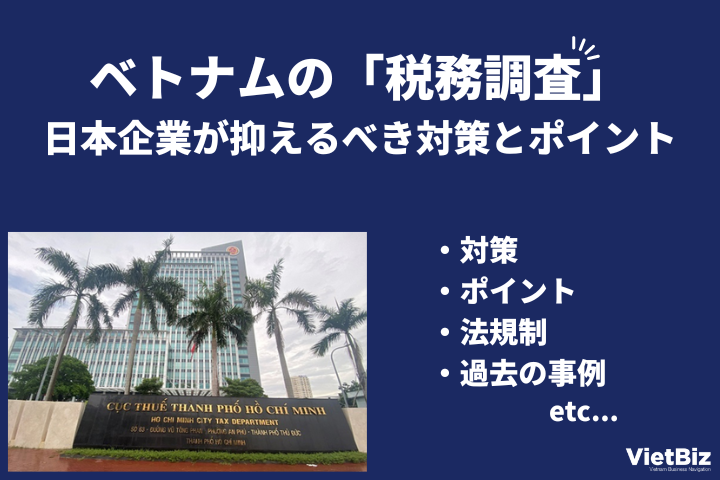Introduction:What Is A Tax Audit?
A tax audit is an investigation conducted by the tax bureau with jurisdiction over a region to verify the accuracy of tax returns submitted by taxpayers.
In Vietnam, there are two types of tax inspection systems: “tax inspection” (Vietnamese: KIỂM TRA THUẾ) and “tax audit” (Vietnamese: THANH TRA THUẾ).
In this report, we will discuss taxation, an essential part of doing business in Vietnam, from the perspective of tax audit preparation.
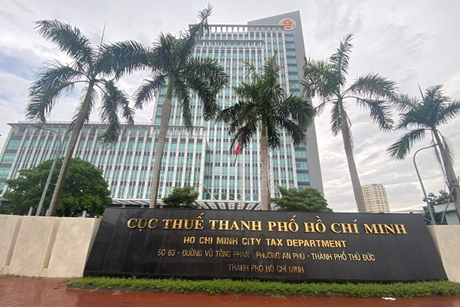
Tax Inspection
Tax inspections in Vietnam are periodic checks of the appropriateness of taxpayers’ tax returns. Basically, all taxpayers can be subject to inspections, but foreign-invested enterprises in particular tend to be inspected more frequently.
The inspection targets are companies that fall within the sample selected through sampling by the tax bureau, but priority is given to companies with clearly inappropriate tax returns and companies with a high risk of tax evasion.
Companies subject to a tax inspection are notified by the tax bureau three weeks before the inspection takes place. The inspection will then take place for a period of up to 10 business days, after which guidance on tax reporting methods and a decision on additional taxes will be made.
Tax Investigation
A tax audit in Vietnam, on the other hand, is a more serious investigation than a tax inspection, which is conducted on a non-routine basis. While tax inspections are conducted on a sample of companies, tax audits are conducted on companies that are suspected of violating tax laws and regulations, and are carefully prepared by the tax authorities. This includes companies that have been determined to have a very high probability of tax evasion, or where tax evasion has been revealed through internal or external accusations. The investigation period is 45 to 150 days, and a thorough investigation, including documentary evidence, is conducted.
If a tax audit is conducted and tax evasion is revealed, the additional tax due could be in the millions of yen, and in some cases, the responsible party may be held criminally liable. Therefore, it is necessary to take care to properly perform day-to-day administrative tasks to avoid being the target of a tax audit.
Points Likely To Be Pointed out during A Tax Audit
As mentioned above, foreign-invested enterprises in Vietnam are frequently subject to tax audits (mostly “tax inspections”) by the authorities. If violations are found during these inspections, the penalties are extremely heavy and can be a significant burden for the company. In order to prevent such problems, we would like to explain the points often pointed out by foreign-invested enterprises during tax inspections.
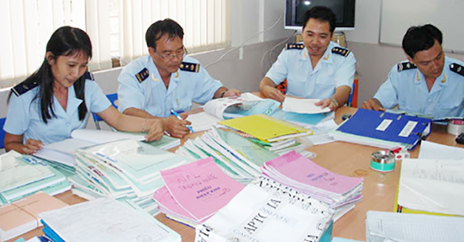
Accounting Errors due to Incompetence of Accounting Staff
When Japanese companies hire accounting personnel in Vietnam, it is difficult to evaluate their skills. This is because it is very difficult for Japanese expatriates to identify excellent accountants, since an understanding of Vietnamese accounting standards and practical experience are indispensable in assessing their skills.
As a result, they often hire accountants who lack competence, resulting in many routine accounting processing errors. Local Japanese representatives and executives also have little understanding of Vietnamese accounting, making it difficult for them to notice mistakes.
The gradual accumulation of these errors often results in improper tax reporting, which is pointed out and fined during tax audits.
Insufficient Invoices and Other Documentation due to Internal Control Deficiencies
During a tax audit in Vietnam, the tax inspector will ask for evidentiary documents to support “why such accounting procedures and tax declarations were made. However, if the company’s internal control and document management system is weak, it is often unable to respond to the points raised by the tax inspector because appropriate documents have been lost or there are errors in the invoice issuance procedure.
Since each company is required to maintain proper documentation, failure to submit documentation will result in fines and additional taxes for violation of the company’s obligations.
Miscommunication due to Language Barriers
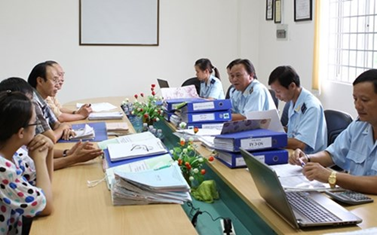
In Vietnam, tax inspectors may conduct hearings with the company’s management. When a Japanese person conducts the hearing, a Japanese-Vietnamese interpreter will be provided, but the interpreter does not necessarily have expertise in accounting. This can lead to incorrect interpretation, which can result in misunderstandings during the tax audit.
Lack of Transfer Pricing Documentation
Vietnam’s transfer pricing system is stricter and more complex than Japan’s, and Japanese in local staff and management positions often have difficulty preparing documentation due to a lack of understanding of the system.
Transfer pricing is explained in detail in the following article.
Discrepancy between Inventory List and Physical Inventory Quantity
Vietnamese companies often have significant deficiencies in the maintenance and operation of internal controls, and it is not uncommon for differences to occur between book values and actual values. In particular, in the manufacturing industry, the inventory list in the system does not match the actual inventory quantity, and the accounting department’s lack of accounting knowledge and proper accounting for the discrepancies can be pointed out during tax audits.
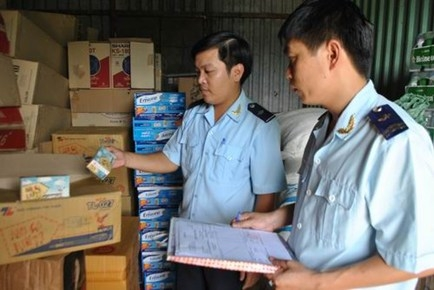
If A Violation Is Found during A Tax Audit
If a tax audit in Vietnam reveals improper tax reporting, the taxpayer is subject to a hefty fine in addition to the additional tax due. In Japan, a 40% surcharge is imposed on the amount of the additional tax due, but in Vietnam, the surcharge can be as much as two to three times the amount of the additional tax due.
Other acts that may cause a fine to be imposed are defined as follows
| Actions subject to additional collection | Amount of fine |
| Errors in tax filing procedures | Up to 25 million VND |
| Under-reporting and over-reporting of tax refunds | 20% of the additional tax amount |
| Delayed tax filing | Up to 25 million VND |
| Tax evasion and fraud | 2 to 3 times the additional tax amount |
| taxes in arrears | 0.03%〜 0.07%/day |
Cases in The Past Where Foreign Companies Have Been Subjected to Additional Taxation in Tax Audits
In Vietnam, foreign-invested enterprises are easily targeted by tax audits, and there have been many cases in the past where major foreign-invested enterprises were found in violation by tax audits and paid large fines. This report introduces two of the most well-known cases.
Coca-Cola Vietnam Case Study
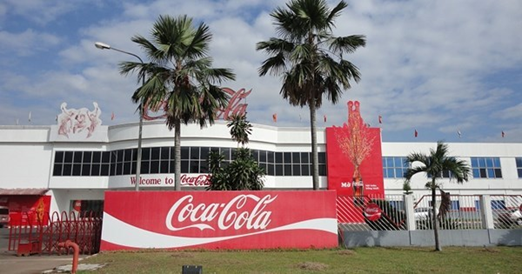
Since its establishment, Coca-Cola Vietnam has continued to record huge losses every year; as of 2012, Coca-Cola Vietnam had recorded a cumulative loss of VND376.8 billion, far exceeding its initial investment of VND295 billion. The Ho Chi Minh City Tax Department suspected that improper transfer pricing was behind the company’s continued losses as the leader in Vietnam’s beverage industry, and conducted an extensive tax investigation. As a result of this investigation, the Tax Department found that the prices of raw materials purchased by Coca-Cola Vietnam from its affiliates were unreasonably high and imposed a fine of over VND47 billion on Coca-Cola Vietnam.
PepsiCo Vietnam Case Study

Coca-Cola competitor PepsiCo Vietnam was also hit with an additional VND1.8 billion in taxes in 2017 due to the misapplication of preferential tax treatment.
When PepsiCo Vietnam opened a new factory in Can Tho City, it obtained permission from Can Tho City Hall to apply the preferential tax treatment for new investment and used the tax reduction system for 6 or 7 years. However, in 2015, the results of a tax audit by the Ministry of Taxation indicated that PepsiCo’s new plant was not a new investment but an expansion investment, and therefore the same preferential tax treatment as a new investment could not be applied. This finding resulted in PepsiCo Vietnam paying an expensive additional tax penalty.
Summary
As we have seen above, for Japanese companies in particular, tax audits in Vietnam present a number of hurdles to overcome in addition to the language barrier. When doing business overseas, not only in Vietnam but in any country, it is necessary to understand the obligations as a legal entity and to carry out the appropriate registration and procedures.
A tax audit in Vietnam is an unavoidable event when conducting business. However, even if one hurriedly prepares for the audit after being notified of the audit, it is not possible to respond to the audit in a spur-of-the-moment manner. Therefore, it is necessary to have a system in place to be able to respond to a tax audit on a regular basis, no matter when it occurs.
Vietnam’s tax system differs from Japan’s in many respects, and the tax system is also being newly amended on a daily basis. In addition to assistance in responding to tax audits, we recommend that you consult with relevant experts, consider consulting and other services, and attend seminars.
【関連記事】ベトナムの税制と関連分野については、こちらの記事も合わせてご覧ください。
ベトナム市場調査レポート一覧はこちらからもご覧頂けます。

ベトナム市場の情報収集を支援します
ベトナム市場での情報収集にお困りの方は多くいらっしゃるのではないでしょうか。
VietBizは日本企業の海外事業・ベトナム事業担当者向けに市場調査、現地パートナー探索、ビジネスマッチング、販路開拓、M&A・合弁支援サービスを提供しています。
ベトナム特化の経営コンサルティング会社、ONE-VALUE株式会社はベトナム事業に関するご相談を随時無料でこちらから受け付けております。

